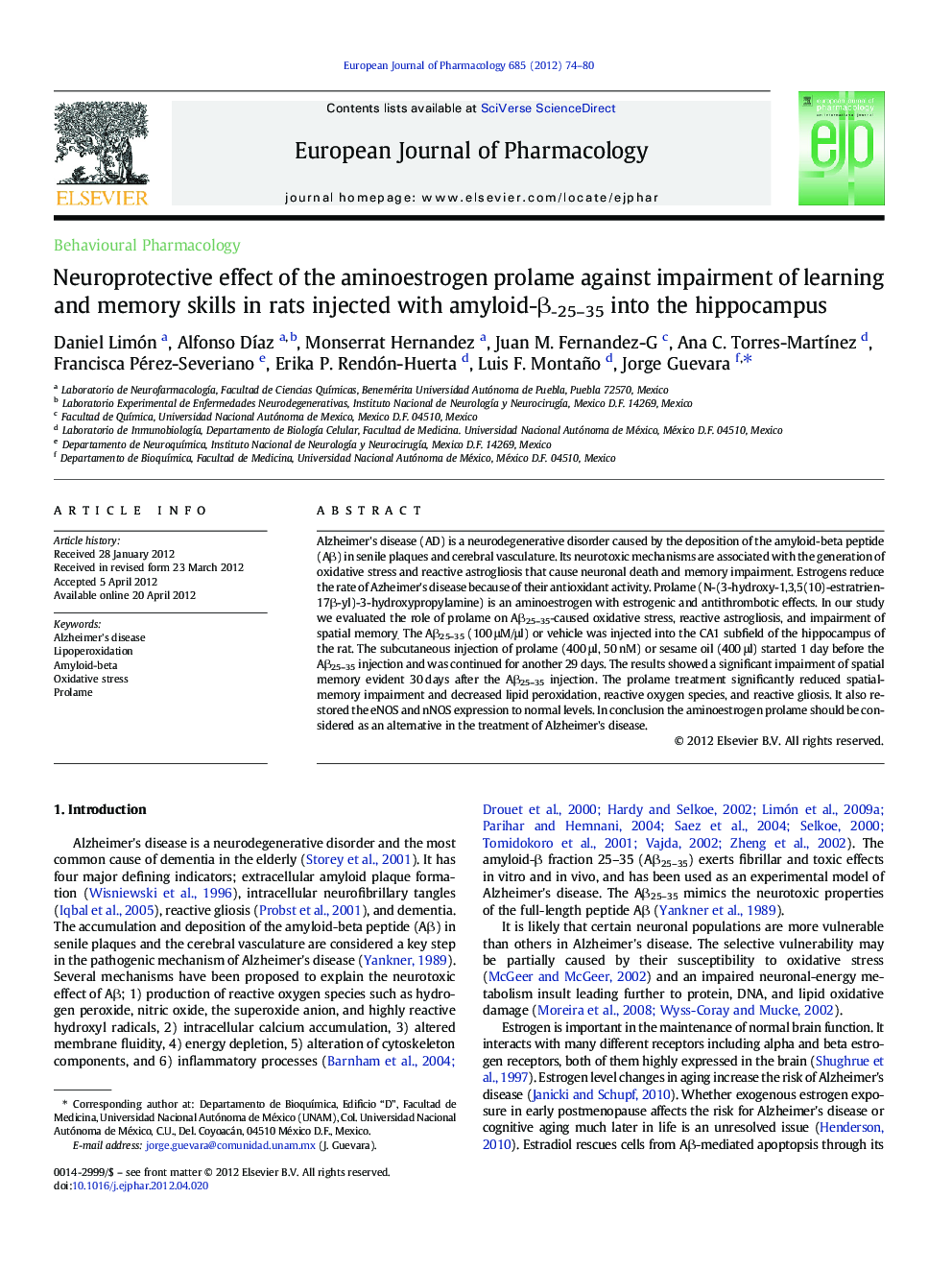| Article ID | Journal | Published Year | Pages | File Type |
|---|---|---|---|---|
| 5829483 | European Journal of Pharmacology | 2012 | 7 Pages |
Abstract
Alzheimer's disease (AD) is a neurodegenerative disorder caused by the deposition of the amyloid-beta peptide (Aβ) in senile plaques and cerebral vasculature. Its neurotoxic mechanisms are associated with the generation of oxidative stress and reactive astrogliosis that cause neuronal death and memory impairment. Estrogens reduce the rate of Azheimer's disease because of their antioxidant activity. Prolame (N-(3-hydroxy-1,3,5(10)-estratrien-17β-yl)-3-hydroxypropylamine) is an aminoestrogen with estrogenic and antithrombotic effects. In our study we evaluated the role of prolame on Aβ25-35âcaused oxidative stress, reactive astrogliosis, and impairment of spatial memory. The Aβ25-35 (100 μM/μl) or vehicle was injected into the CA1 subfield of the hippocampus of the rat. The subcutaneous injection of prolame (400 μl, 50 nM) or sesame oil (400 μl) started 1 day before the Aβ25-35 injection and was continued for another 29 days. The results showed a significant impairment of spatial memory evident 30 days after the Aβ25-35 injection. The prolame treatment significantly reduced spatial-memory impairment and decreased lipid peroxidation, reactive oxygen species, and reactive gliosis. It also restored the eNOS and nNOS expression to normal levels. In conclusion the aminoestrogen prolame should be considered as an alternative in the treatment of Alzheimer's disease.
Related Topics
Life Sciences
Neuroscience
Cellular and Molecular Neuroscience
Authors
Daniel Limón, Alfonso DÃaz, Monserrat Hernandez, Juan M. Fernandez-G, Ana C. Torres-MartÃnez, Francisca Pérez-Severiano, Erika P. Rendón-Huerta, Luis F. Montaño, Jorge Guevara,
